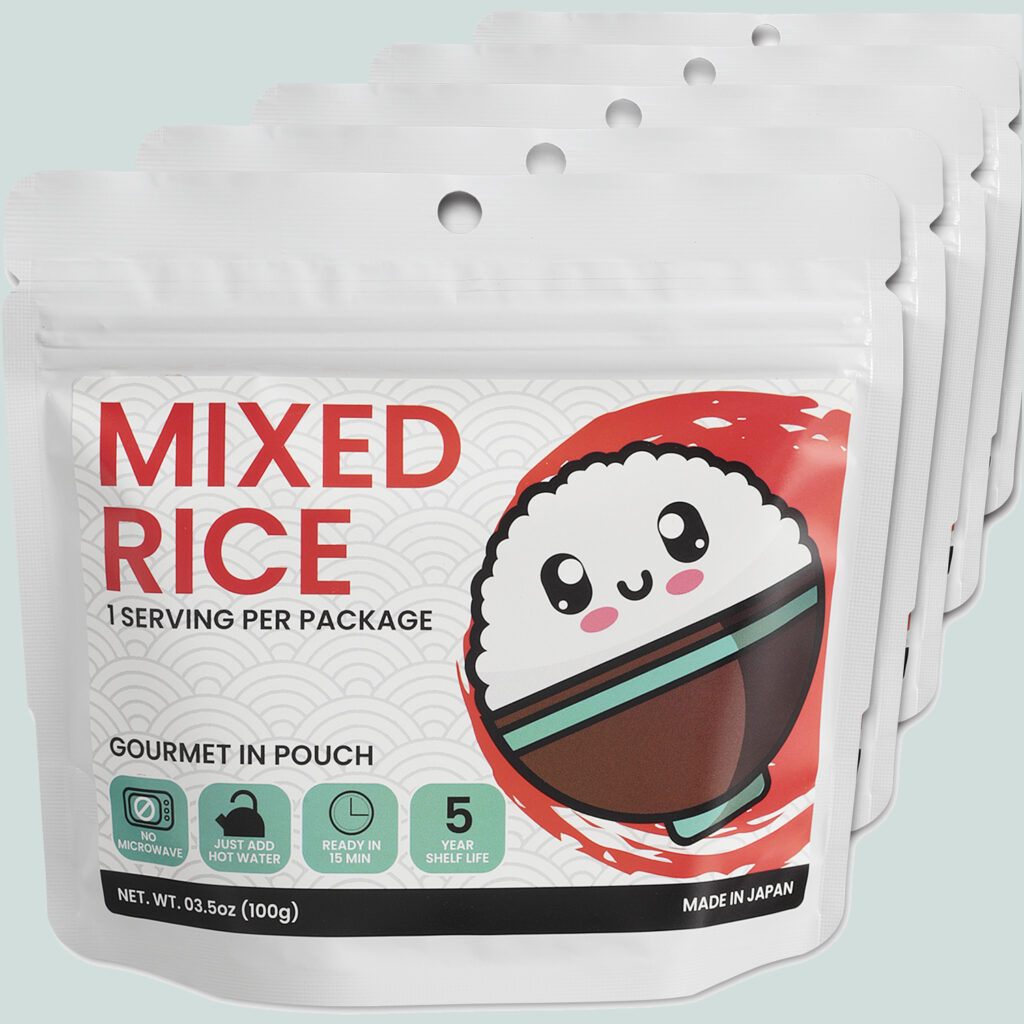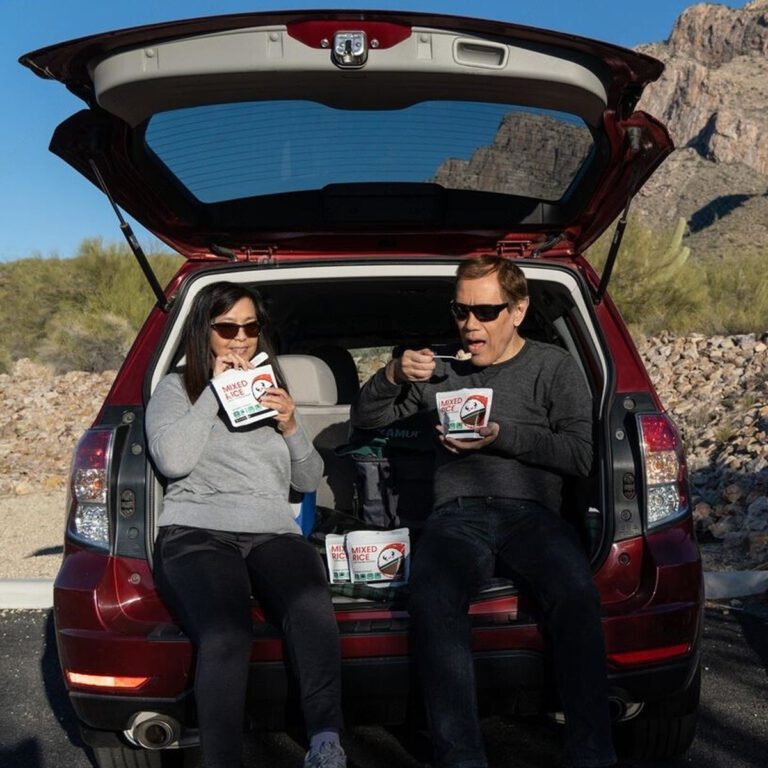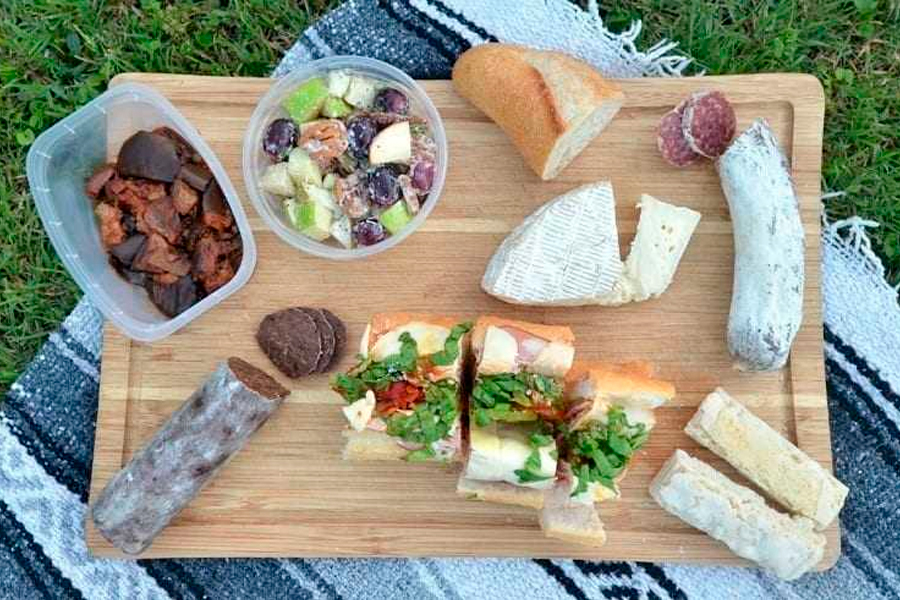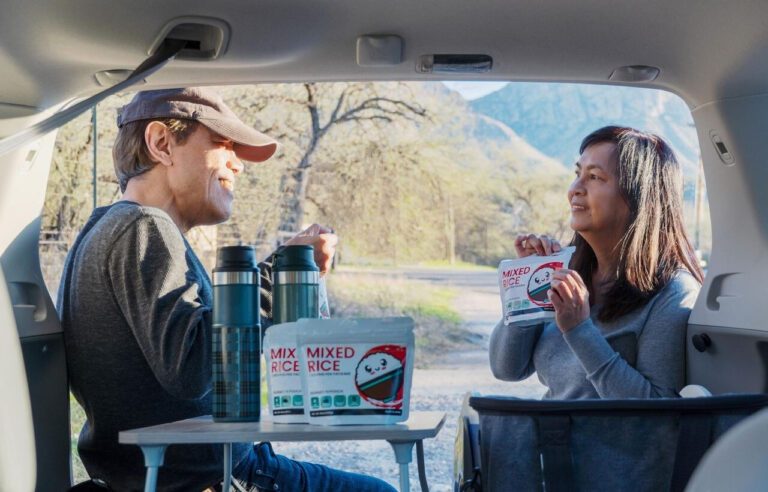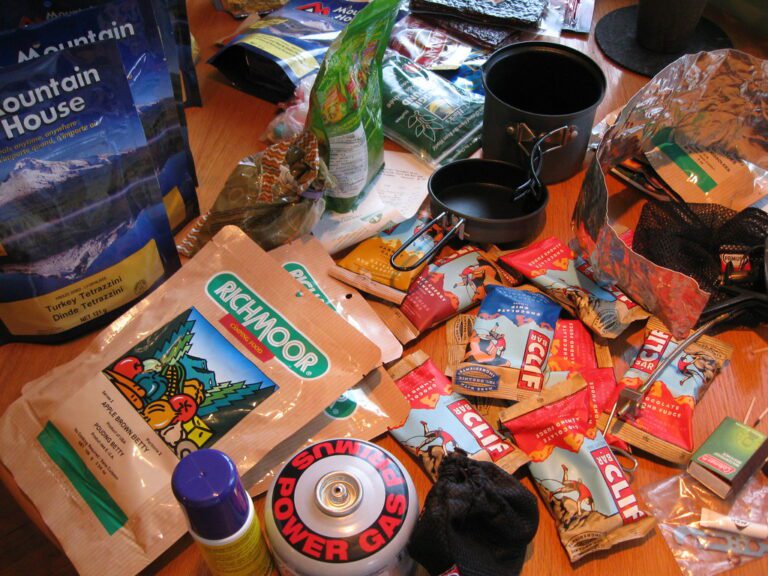Phone
+1-650-666-095
Contact E-mail
[email protected]
Address
16192 Coastal Hwy, Lewes, DE 19958-3608
Camping MREs: Staying Nourished In The Wilderness
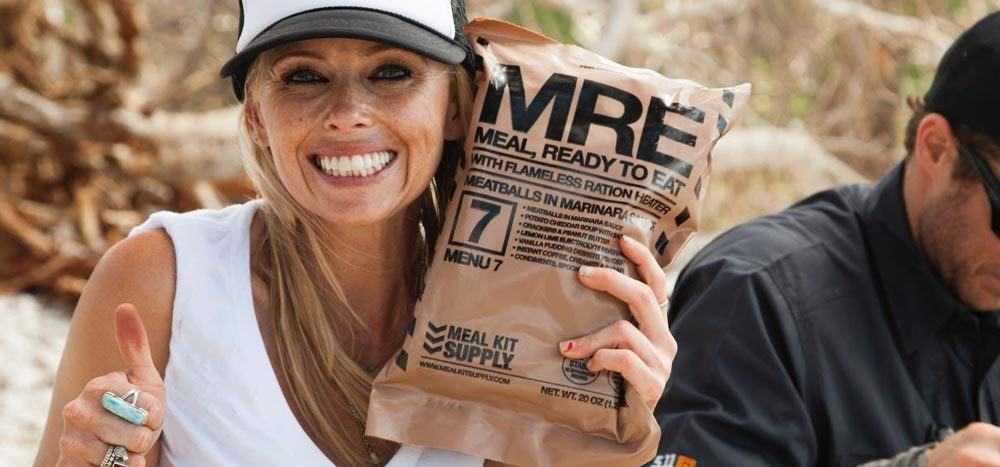

Why am I thinking about a camping MRE when I do have not much to plan for my next camping trip already? There are a lot of things that you have to consider before you go out on a camping trip, but there are some things that are a little more crucial than others. For example, ensuring that you have enough food and water (including emergency reserves) is one of the first things that you will want to consider in your plan.
It can be tough to find the right kind of food that will be able to last the duration of your camping or backpacking trip while still retaining enough flavor and nutrients. Throughout history, campers and backpackers have had to try their hardest to come up with food that is compatible with the backcountry. A lack of refrigeration while needing flavor and nutrients makes this a challenging task.
Of course, a cooler is an excellent way to provide some temporary refrigeration for the food that you bring with you. The use of a cooler is ideal for a drive-up campsite or one you could pull a wagon to. If you’re looking for a fun spring camping experience, another meal may be in order. One of the best options when it comes to meals on the trail is MREs for camping.
While some may complain about the quality of MREs for camping, you will find that there are popular flavors to choose from that are better than many other camping food options. All flavor aside, the sheer convenience of the MRE is what makes it such an excellent choice.
Let’s start by laying out the groundwork and explaining what an MRE is in the first place, as it is likely that this topic brings about confusion.
What Are Camping MREs?
MRE stands for Meal, Ready to Eat. The US Army created the term MRE during the Vietnam War. They were working to find a replacement for the rations that soldiers used during the war. An MRE is an individual-soldier ration meant to ensure that a soldier gets the nutrients they need while they’re in the field.
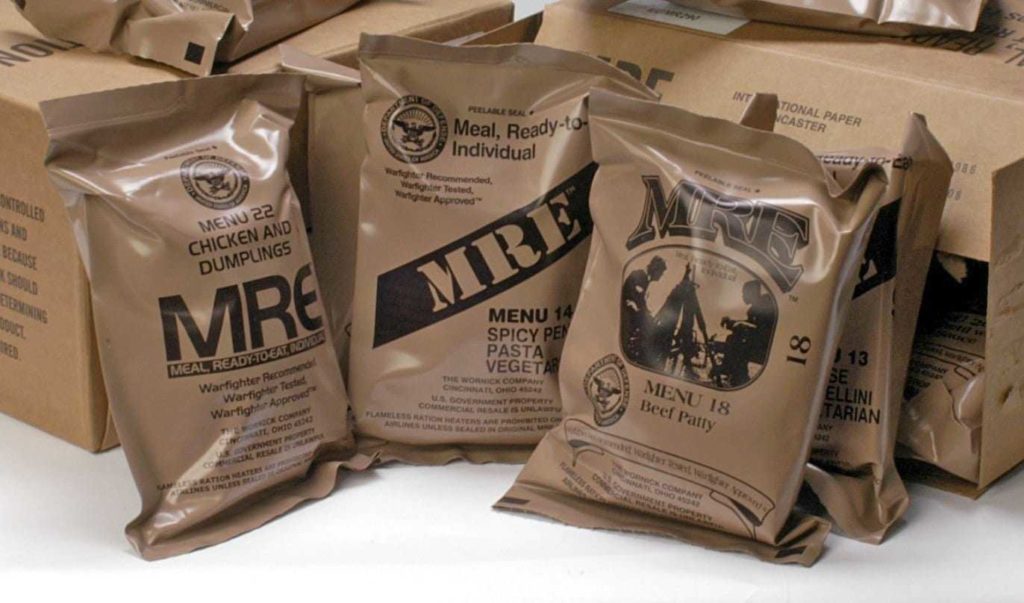

It is easy to see how soldier rations and camping food can share some commonalities that make them suitable for both tasks. Let’s take a look at some of the reasons why you may want to use MREs as camping food instead of some of the other options.
What Are the Advantages of Camping MREs?
There is no doubt that the Camping MRE is an excellent option for anyone that needs the right camping food, but you may be wondering what exactly goes into making that so. There are a few different characteristics that make these meals ideally suited for consumption when in the wilderness.
Calorie Control
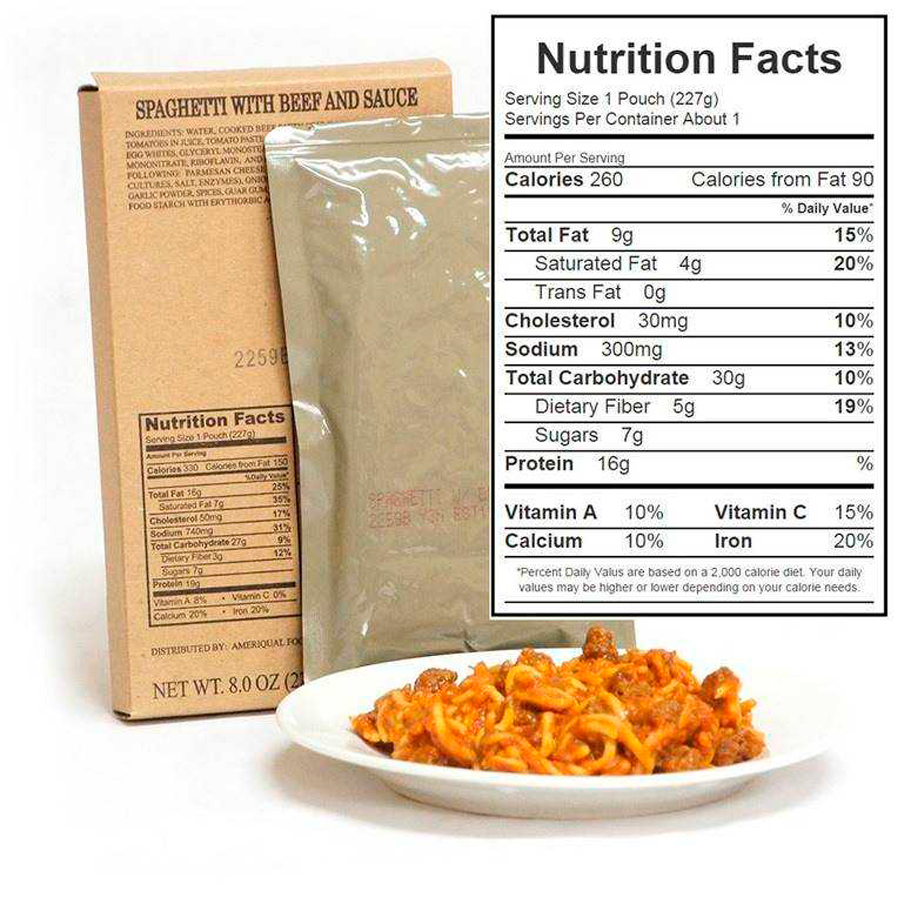

One of the best things about camping MREs is that their design provides you with a set amount of calories. The design of some MREs provides meals throughout the day. Breakfast, lunch, and dinner are all a part of one MRE, while other options will only have provisions for a single meal. The good news here is that you can choose the type that works best for you.
Keeping track of your expended calories in the wild can be more of a challenge than expected. You will have to consider how much energy you will be using throughout your camping trip. Are you merely drive-up camping? If you decide to go hiking, for instance, you will need to eat more than if you sit around the camp. Are you on a backpacking trip? Backpacking means you’re hiking into the woods to your campsite with everything you need to sleep and eat. Be sure to check the caloric density of your MRE, and be sure to pack enough calories for your adventure.
We would recommend purchasing several different kinds of camping MREs if you are looking to use them as your exclusive food source while you are out in the wilderness. Having a wide range of meals to choose from will make your eating experience more enjoyable!
Weight
Another massive advantage to the camping MRE is that it weighs far less than most other foods, which allows you to pack light. Low weight is a massive advantage to backpackers and other campers, hikers, and backpackers. It’s important that they keep equipment and provisions to a minimum so that they won’t find their trip overwhelming.
Of course, just because an MRE for camping doesn’t weigh all that much, it doesn’t mean that it won’t provide all of the nutrients that you need. The construction of these meals ensures that you get all of the required macro and micro-nutrients out of them as efficiently as possible, lowering their weight significantly.
Self-Heating
While this is only the case for some MREs, you will find that many camping MRE meals will come with flameless radiators that work using chemicals. Of course, your food is not directly exposed to the substances that heat it up, usually only coming into contact with the outer aluminum foil.
The advantage of a flameless heater is that you don’t have to worry about starting a fire. In some natural spaces, you cannot have a fire by law. Using a chemical means of heating will give you access to a warm meal without a fire. Keep in mind that some MREs will not come included with a way to heat them up, so you may have to either make a fire, bring a camp stove, or consume them cold.
Accessories
Another thing to consider about MRE camping meals is that they will often include accessories and other amenities that will make your meal more pleasant. For example, some will come with disposable mugs, foil packets for makeshift plates, coffee, sugar, salt, and more.
Some camping MREs even come equipped with water purification tablets. This style of MRE will often be more expensive and of the survival MRE variety. Of course, plastic utensils are also a frequent inclusion to facilitate the consumption of your MRE.
While some MREs may come with accessories that you would question in a camping situation, please consider that their design is for soldiers first and foremost. It is for this reason that the best MRE for camping may not always be the most well-received one for the military.
What Are the Disadvantages of Camping MREs?
Although there are many reasons a camping MRE is an excellent option for trail food, they don’t come without disadvantages. There are a few things to watch out for when deciding whether or not an MRE for camping is your best option.
Shelf Life
Despite the fact that survival was the inspiration behind the creating MREs, their shelf life isn’t as long as many expect. Under perfect conditions, an MRE can have a shelf life of up to 3-5 years. When exposed to extreme temperatures, their shelf life exponentially decreases to a measly 1-9 months.
Bulky Packaging
The average MRE weighs between 18 and 26 ounces and has a dimensional size of 3”x12”x8”. That’s a 5 subject spiral notebook weighing a little over one pound in your pack. Although you can strip a camping MRE of unnecessary packaging or food items you do not like or will not eat, that meal is going to take up quite a bit of space.
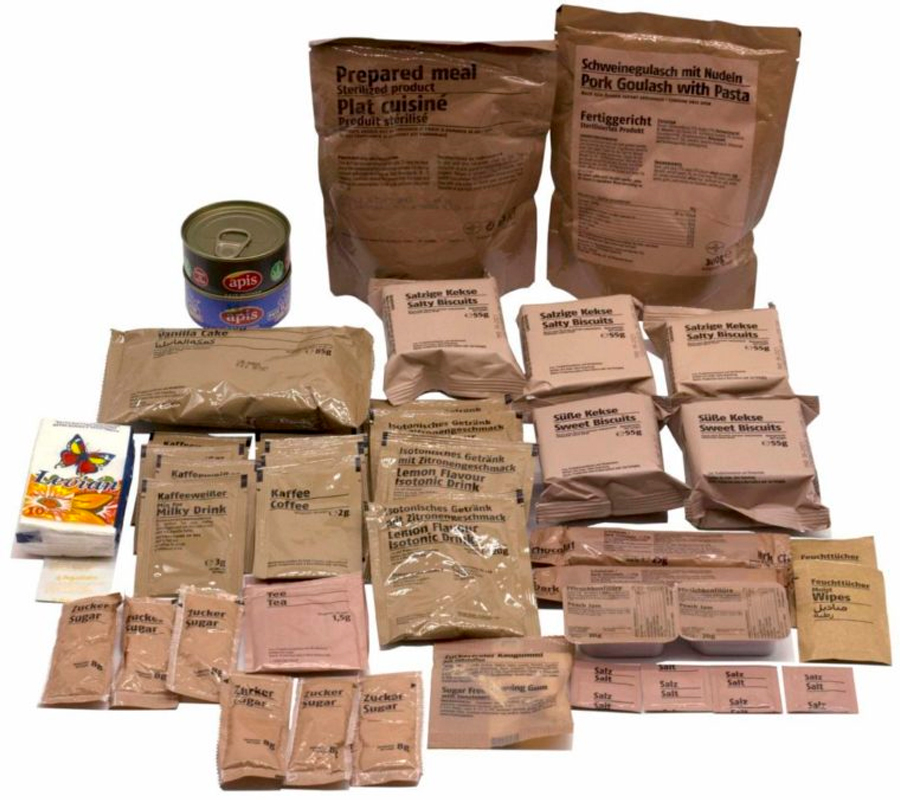

Nutritional Value
Although MREs can be high in protein, micro-nutrients, and calories, they often lack in other areas. MREs are high in sodium; however, sodium on the trail is a great way to produce energy because salt is an electrolyte. Nevertheless, too much salt has long-term adverse effects on many of the body’s organs. It’s important to find a happy
MREs for camping are also low in dietary fiber. Fiber assists in running your dietary system properly. A positive side effect of eating enough fiber includes regular bowel movements. Although you may not want to have a bowel movement while on the trail, it would benefit your health greatly if you did! Too many MREs will leave you constipated.
The extended use of MREs can lead to gastrointestinal problems. An MRE needs to withstand exposure to the elements while maintaining a shelf life unlike that of fresh foods. As a result, highly processed items compose an MRE. Heavily processed food items can lead to a lack of diversity in a person’s gut microbiomes, which can lead to gastrointestinal symptoms and intestinal permeability. Allowing waste products to leak into the bloodstream via weakened intestinal walls has earned the name gut leakiness.
Can I Make My Own Camping MREs?
Let’s DIY our MREs! You will find yourself saving money while making a custom meal for your next wilderness adventure. We will quickly go through what you need to do in order to make this your reality.
Gather Your Goodies
Pick some of your favorite foods that you can either eat right out of the package or after cooking using nothing but water. This means you will need access to water where you are camping. The items you choose for your DIY MRE must also be non-perishables. Examples include cereal bars, tuna packets, mac and cheese packets, ramen noodles, instant oatmeal, dried fruit, candy bars, and so much more. Items people often forget but would be beneficial include protein powders, instant drink mixes, energy chews, and spices!
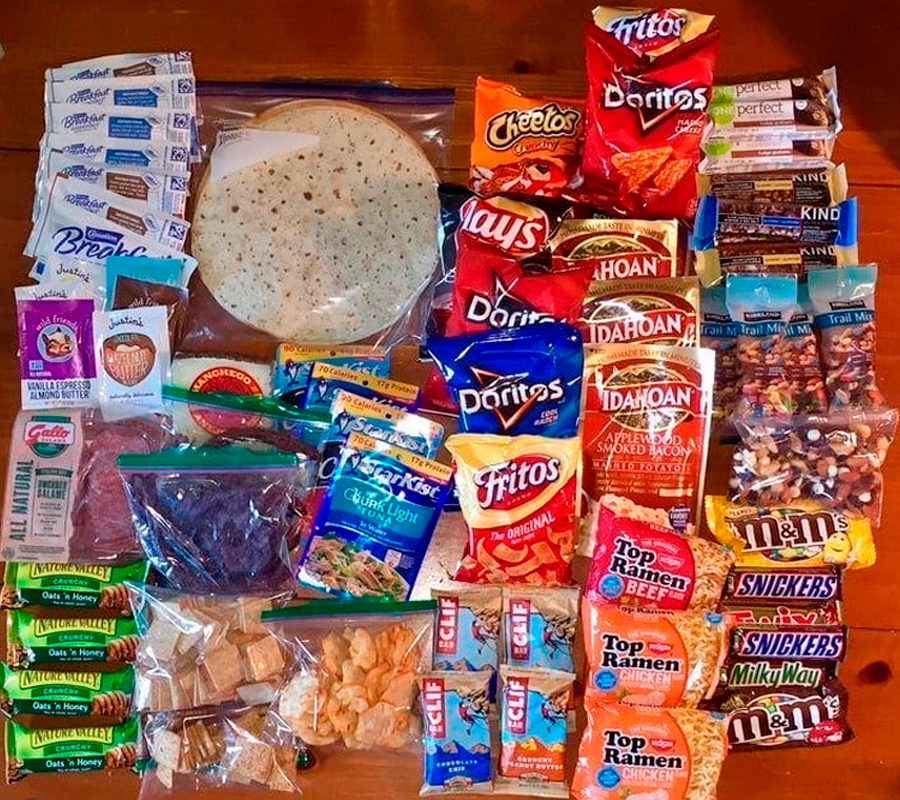

Prepare Your Menu
Rifle through your grocery haul and figure out what you want to eat each day. Don’t forget to change your meals up day-to-day so you don’t get tired of eating the same food over and over again. Pairing items that go well together is a must as well. For example, Mac and Cheese with a side of rice might not be the most well-rounded meal you can create. Mac and Cheese with a BBQ tuna packet sound like a more palatable, nutrient-dense combination.
Package Your Meals
There are a lot of different ways you can package your camping MREs and a few tips to make the process easier. If you plan on eating instant rice, potatoes, mac and cheese, noodles, etc. take them out of the packaging and put them into an individual separate plastic (or reusable) baggie. From this point, you can divide your meals up by day and put them in a gallon-size zip-lock bag or shrink-wrap them to make the most of your space. If you’re going to shrink-wrap your daily meals, be sure to poke a hole in any of the bags within the shrink wrap to prevent bloat during vacuum-sealing.
Label Your Camping MREs
If you are simply putting your meals into gallon-size bags, you can label your meals by day, type, or both. Whip out that sharpie and write “Dinner 1”, “All Dinners,” or “Day 1 Meals,” as you see fit. It will make life a lot easier when you’re looking for your meals. Don’t forget that your gallon-size bag doubles as a garbage bag.
We suggest grouping each meal together if you plan on shrink-wrapping your camping MREs. Once you open the shrink wrap, you won’t be able to seal it properly. When you shrink-wrap your meals, you also create a longer shelf life!
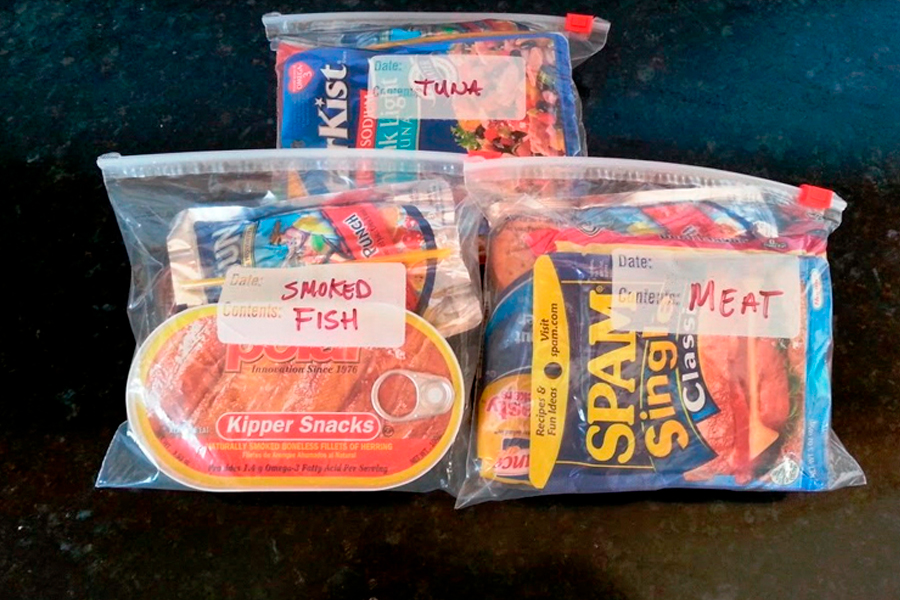

How do I Store my MREs While Camping?
I’m so glad you asked! It’s essential to do your research on the regulations of wherever it is that you will be camping. Every place is different. Food storage is incredibly important when it comes to Leave No Trace to protect the local wildlife. Proper food storage is both for your safety and the safety of the wild space you’re recreating.
Campgrounds
In many campgrounds, especially those in National Parks, wildlife becomes comfortable around humans due to easy access to food. Many campgrounds provide bear lockers or other animal-resistant storage containers for you to use. If those measures are unnecessary, you can usually store food in your vehicle as long as it is out of sight with the windows completely closed. Never store your food in an open pickup bed or in a cooler outside of your vehicle.
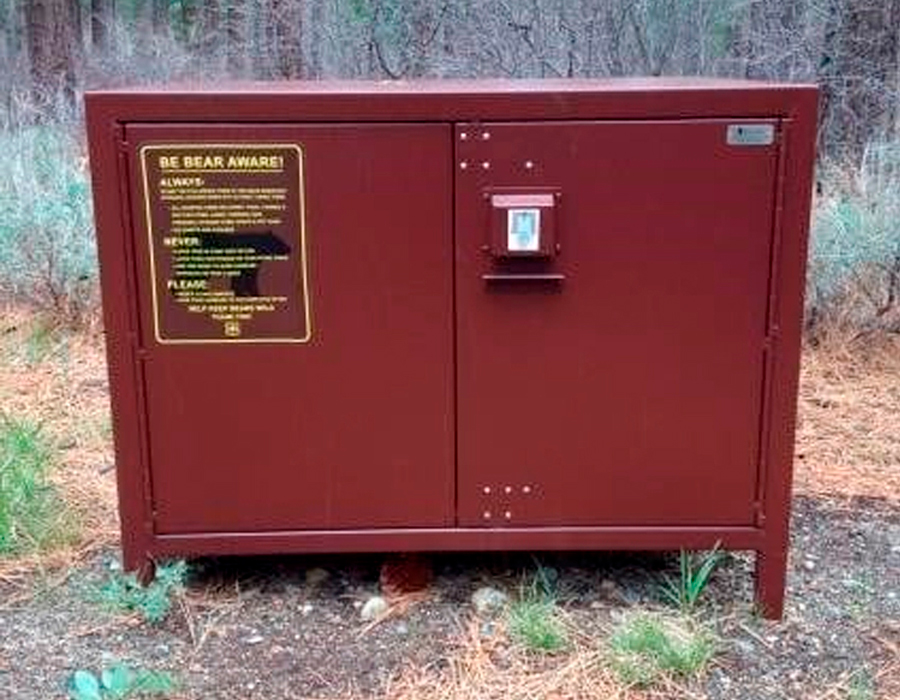

Drive-Up Campsites
When accessing a free drive-up campsite in a National Forest, Bureau of Land Management, or other State and Federal lands, you must know what safety precautions to take around food storage. Storing your food out of sight and inside of a container in your vehicle with the windows up is often adequate. Always stay up to date on the local regulations for campfires and food storage where you are traveling.
Backcountry Camping
Backcountry camping requires a lot of research. Included in this research should be proper food storage. Every wild space is ever so slightly different. In some places, you must carry a specified bear canister. In others, you can hang a bear bag or use odor-blocking bags. Regardless of backcountry food storage requirements, be sure to store it away from where you are sleeping. Generally, 150 feet is the suggested distance from the camp when you’re in the backcountry. It’s also essential that you don’t cook near your sleeping quarters as well. Never turn your back to your meal and always keep food within arm’s reach while cooking and eating.
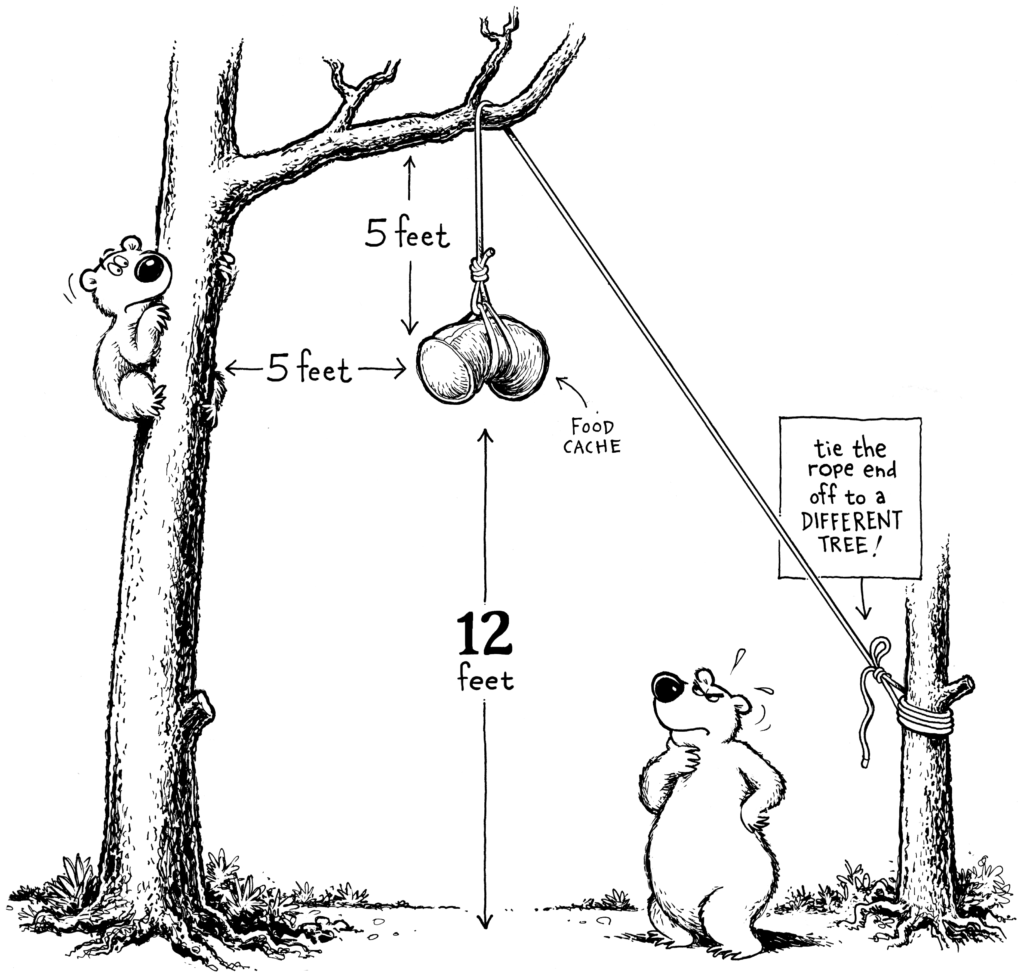

Will You Utilize a Camping MRE?
MREs for camping can be a great tool. They can also play a vital role in survival in the case of an emergency. Weigh out the pros and cons to see if a camping MRE is right for you and your needs.
Camping MRE FAQs:
What exactly is an MRE?
MREs, or “meal ready to eat,” are ready made meals that can be eaten hot or cold and are intended for consumption by the US Department of Defense members during field missions. They are packed in lightweight packaging and contain essential elements suited for the military diet.
Are MREs good for camping?
Since MREs are loaded with energy-giving nutrients and require no cooking, campers, backpackers, hikers, and even survivalists find these meals convenient, especially if they spend several days in the backcountry. Carrying many cooking essentials and cooking itself could be tedious so having these MRE full meals is a lifesaver.
What is the tastiest survival and camping food?
The tastiest survival and camping food depend on the individual but if you opt for convenience, go for freeze-dried food or dehydrated food as they’re light, easy to prepare by just adding water, non-perishable, and come in many flavors. Freeze-dried meals were initially meant for emergency preparedness in disaster-prone countries but gained popularity among outdoor enthusiasts.
What is the shelf life of military MREs?
Military MREs don’t have an expiration date, making one think about how long it is safe to eat. Although military MREs are produced to withstand extreme weather conditions, the average shelf-life is five years if stored under 75 degrees Fahrenheit. Lower temperatures will increase its shelf life in the same way that high temperatures will lessen its shelf life. Military MRE stocks are usually replaced once every five years.
Can you eat MREs for a long time?
MREs are nutritious, but experts recommend not depending on MREs as the only form of food for more than 21 days in a row. According to them, these food rations are safe to eat, but they have preservatives that could pose health risks if consumed in excess.
Is there a civilian MRE?
There are civilian MREs due to the demand for commercial versions of MREs. Civilian MREs are a top pick among outdoor enthusiasts because they’re delicious, light to carry, and quick to prepare. Military MRE manufacturers saw the need to produce civilian MREs – you can find them in many online stores. Military MREs are not for sale because they’re intended as ration packs for military members during troop missions.
What types of food do you need in a survival situation?
In a survival situation where food is scarce, your food list should include non-perishables with nutritional value. These emergency foods include grains, dried beans, rice, crackers, nuts, jerky, and water. If you’re looking for convenience, freeze-dried food and MREs are excellent options. You should include them in your survival kit, especially when you’re in a place where water supply can become a challenge.
Resources:
- Made with 100% Japanese rice
- Authentic taste of Japanese cuisine
- Tasty freeze-dried meal
- Add hot water. Ready in 15 minutes
